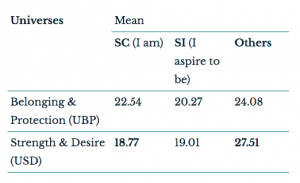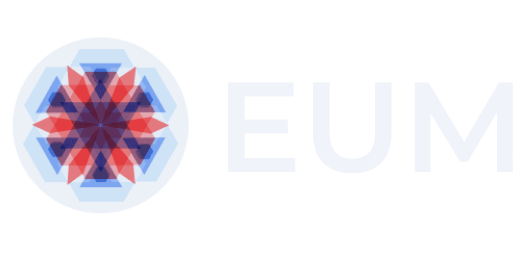
By Gagandeep Singh
Part 1
The Story …
Ravi pushed his chair back on a hot May afternoon in western India and sighed …
The antiquated AC, crookedly nestled on one top left corner in a large cabin, wheezed and grunted as it heroically struggled to push in a draft of cooler air into the otherwise stultifying heat within. The cabin of the Vice President and Head – Manufacturing was on the second floor, overlooking the central shop-floor – Ravi could, if he wished to glance on his left, see the factory slowly lull its way into stillness with the advent of annual maintenance.
To his right was a large window, and he could, which he was prone to, gaze on the green manicured lawns that shimmered in the heat of 45 degrees plus – the lawns were always lush – watered and maintained to give the impression of natural beauty and resplendence for the unsuspecting visitor to one of the largest manufacturing plants in the country. However, the drama inside the plant was steadily veering away from the salubrious surroundings outside into another of those fights that had gotten escalated.
Lying across his table, which otherwise was bare and neat, was the latest report from his production Head – an old hand who had been around for ages – who was called by everyone as Mr. Desai.
Now, Desai never sent emails, excel sheet attachments, or WhatsApp messages as many of his colleagues did these days – he would always submit a formal, neatly typed and stapled report on executive stationary imprinted with the company logo. Desai would have loved to send this from a dot-matrix printer, had he been able to clutch on that ancient machine which was almost forcibly taken from him by the IT gang. Desai was quite compulsive obsessive about such things including reports.
This particular report said nothing that Ravi was not aware of…
Production had failed to meet their monthly targets for reasons that were partly legitimate and understandable, while the plant maintenance team had been stern and non-negotiable in their resolve to start the annual maintenance drive on time. Desai had wanted a couple of additional shifts in Plant C – this request had been denied by Ajay Mehta – a younger colleague who headed the maintenance function. Ravi had been out for the past three days – sitting in HO – and battling his boss – Hema…
The report stressed on the fact that three formal yet polite requests had been turned down by Ajay. Desai had finished his letter with a flourish, extolling his dedication to the business, his sensitivity to the many customers who had been depending upon him, and his loyalty to the family that had set this plant up many decades ago – and how business and customers were losing their priority as the management was turning into a bureaucracy – stuck on rigid procedures and deadlines. He had mustered enough power to comment on how a serving function had transformed over the last two years – run by a potentate who had no regard for business.
Adjusting and shifting the damp white towel that covered his chair – it also emitted a light rancid smell that went unnoticed by its occupant, Ravi loosened the frown on his face, took a deep breath, and then rang in his secretary to call the two senior managers over.
His mind went two years back, when he had, despite heavy criticism from HO, taken a decision to promote Mehta – a young production engineer, with a chip on his shoulder, into heading the Maintenance function – something that was unheard of. Mehta had been the direct report to Desai for a couple of years, having risen into prominence with his understanding of manufacturing intricacies, technology and things were heating up to a stage where Ravi would have had to make a choice between Desai and Mehta for the role of production head.
Ravi had deliberated on this dilemma for some time. Both Mehta and Desai had contrary managerial styles:
For all his brilliance, Ajay Mehta was not very good with handling people especially workers, foremen, and staff – he was aggressive, insensitive, and extremely judgmental. In the words used by the HR head – Ajay lacked emotional intelligence. Mehta was high action oriented and pushy, passionate and intense, and quite often the bull in a chine shop.
Desai on the other hand, was known for his calmness, his tactfulness, and his veneer of serenity and maturity that seldom cracked – he was quite like his own boss which made Ravi smile. Desai had an old-world charm around him – he remained sanguine and unruffled despite all the pressures – he had his flaws like everybody else. For example, what lay beyond his taciturn demeanor was mystery to most – the cards were seldom laid out bare on the table. The need to know principle determined most relatedness and relationships.
Fortunately, the context two years ago, offered a wonderful opportunity – there was a need to set up and maintain new technology within the plant, and this was an opportune moment to offer this assignment to Mehta. Ravi never turned down such blessings that came his way.
The two years had not been smooth at all – there had been recurring events of miscommunications, conflicts, poor turnaround efforts by maintenance, dismal preventive maintenance by production – and the new technology had turned out to be not so reliable and splendid as made out by the honchoes at the head office. Ravi had rolled up his sleeves and joined the Plant team including Ajay and Desai – into understanding, learning, experimenting, and running the ‘new’ plant within the old plant.
However, he still empathized with Desai – a bias that he was aware of and which was brought often to his notice by Ajay… and he wondered what does he do today…
Ajay Mehta was the first to enter the Cabin – Mehta looked flustered and reactive – a copy of the report must have been sent to him. Desai strolled in behind him – but his face was graver than usual.
As the conversation progressed, Ajay Mehta kept referring to how Desai was running the production function and how, if he was in his place, Ajay may have done wonders – but these references were indirect and quite insipid. Desai remained taciturn – he neither registered Mehta’s attacks nor his presence in the room – at best re-iterating what was written in the formal letter.
However, any direct confrontation to each other was carefully avoided by both the professionals, and Ravi was quite used to this game. Neither was willing to attack the others’ credentials, competencies, integrity nor were there confrontations on the other’s manipulation – the conversation was akin to the continual, guttural quibbling of two siblings … and Ravi felt at ease as he unconsciously slipped into his ‘fatherly’ role.
Ravi knew and so did everybody who mattered in the plant knew – that the two managers could bitch about the other tills the cows come home, in their respective coteries. But face to face, it would be quite a tame affair and had that familiar ending – where Ravi would speak of the need to be a tightly knit family, and that they were brothers in arms, and that the plant had to be united across the two functions for it to perform.
As the sun merrily set down on its path towards the western perimeters of the factory – having mutely witnessed another implosion accompanied by some catharsis between the two, the heat in the cabin gave way to cooler comforts. The two ‘siblings’ shook hands, the elder one still remaining self-righteous though a bit empathetic to his younger colleague, and the younger showing some contriteness at his own precocity – Ravi settled deeper into his chair.
As Desai and Mehta walked out of his office, Ravi made a mental note of how he would challenge newfangled management techniques being brought in by Hema and supported by Stanley the HR head. The incident this afternoon only affirmed that competitiveness between colleagues only gives way to bitter rivalries and fragments the team – competition just does not enable higher standards of performance as Hema and Stanley were promising.
Down here, hundreds of miles away from Mumbai, living together in a colony, it was important that strong familial bonds were leveraged to perform better…
Part 2
Excerpt: The Quintessential Indian Manager – the EUMian Perspective
This narrative, as a part of the Hema and Ravi series of stories on this blogsite, has been written to illustrate one of the very many findings based on research over the past fifteen years on the EUM framework to look at the Indian Manager. The EUM lens and its findings would be coming soon into the market in the form of a book written by its creator – Ashok Malhotra – it is presently being titled as the Quintessential Indian Manager.
Hema and Ravi form two archetypal entities that are worked with by Ashok in some of the chapters of the book to illustrate some of the challenges faced by the Indian manager today – and this blog complements and supplements his work.
The EUM Bedtime stories, including this one, are illustrating and supporting what the research based on EUM is saying about the Indian Manager – and I take the opportunity of offering one such snippet from the Chapter on Meta-Analysis of the EUM data.
Excerpt from the Forthcoming book:
COMPETITIVENESS and SIBLING RIVALRY
The Universe of Strength and Desire (USD) scores for the Indian managers provide an insight on how he or she processes a sense of competitiveness and envy – two feelings that are salient to this universe.
If we look at the scores of our respondents across 5000 plus Indian managers, the Universe of Strength & Desire (USD) scores in both SC (18.77) and SI (19.01) are much lower than Others (27.51) scores.
What our respondents seem to be saying is that, “The world at large is USD driven – aggressive, hyper-masculine, competitive, reactive, opportunistic – but I am not, nor do I wish to”.

However the scores of Belonging and Protection reveal how the Indian manager copes with the consequent denial of USD within along with taboo feelings that are salient to it.
Our hypothesis is that Indian managers tend to project competitiveness and envy on to the other most often than not. However when competitiveness is put forth to them – they take shelter in the earlier universe of Belonging and Protection to attenuate this accusation within – at best towards terming it as “sibling rivalry” and “jealousy” when faced with real data.
The Indian manager finds it much easier to acknowledge sibling rivalry and jealousy within as opposed to own up his or her competitiveness, rivalry, and envy. The Sibling Rivalry psychodrama at one level, allows for escalations to a benevolent yet discerning father, and offers a sense of safety to each party including the authority figure.
However the taboo on aggression, and the associated strengths of USD never really materialize as resources for the Indian manager – leading to insipid interfaces, passive aggression, and no real testing of boundaries and authority.
The Indian Manager emerges as someone who thus manages interfaces without really working with what lies deep within … and faces a very real accusation of being manipulative and emasculated …
Part 3
Looking at the Story …
So, my dear reader, what is your take on Ravi’s dilemma? How do you work with your competitiveness vis-à-vis your peers, your boss, and your direct reports.
In this narrative, Desai and Ajay Mehta are quick to collude into creating a safe family drama of the elder sibling versus the younger sibling – without acknowledging their competitiveness and envy of each other and are scared to touch these feelings within. They are mortified of consequences of even acknowledging these for this would require testing of the fragility in oneself and the other, and the immense difficulty in having an authentic interface.
Desai and Ajay resurrect the familial drama, reinforcing the universe of Belonging and Protection (UBP) or Clannish culture, and find a pliant authority figure who sees it easier to deal with this conflict from a ‘father-figure’ location as opposed to a structural authority, exacerbating this drama further into an as-if reality where competition gets denied. The work system gets treated as how you and I would walk on eggshells – will the prevailing culture allow for a better tomorrow… Sibling rivalry may encourage the process of infantilizing… and Ravi may unconsciously play out this process.
However the context today in most industries is demanding a sterner questioning of this propensity…
As OD consultants and practitioners, we believe that there is no perfect way of managing competitiveness and envy – however I would like to join Ashok in examining how we have dealt with it traditionally and what alternatives lie ahead.
The Quintessential Indian Manager – A EUMian Lens, offers many a question and many an insight into this and forthcoming anecdotes…
Part 4
A Quick Take on the EUM Framework
Designed by Ashok Malhotra, the EUM framework postulates and leverages a series of psychodramas that co-exist in every human being, triggering inner conversations and stances on leadership, values, and role-taking. These psychodramas are signified by six universes viz.
- Universe of Belonging and Protection (that reinforces our need for safety, belonging, dependency, and anchorage).
- Universe of Strength and Desire (that reinforces our need for adventure, desire, risk taking, courageous encounters, and rugged individualism),
- Universe of Roles and Boundaries (that reinforces our propensity to conform to roles, systems, discipline, duty and honor),
- Universe of Purpose and Achievement (that reinforces our need for success, collaboration, purpose and connect),
- Universe of Meaningfulness and Intimacy (that reinforces our need for cathect, communion, deep dialogue and inclusivity) and
- Universe of Duality and Simultaneity (our need for living in the here and now and playfully engaging with it)
Ashok stipulates that these universes co-exist in each of us – however we are discovering that the Indian manager seems to be having innate and recurring patterns of inner conversations and psychodramas – and research across 5000 plus Indian leaders through two EUM instruments – EUM-I and EUM-O, in corporate world over the past 15 years, is reinforcing these patterns.
The forthcoming book offers the reader these insights and patterns as evinced by our research…








